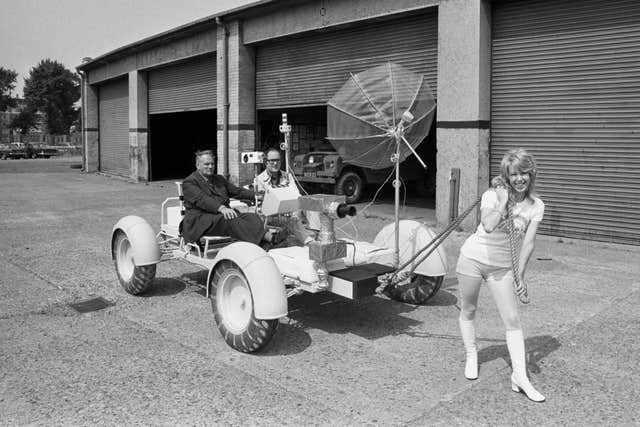
Going back to the moon is a waste of money, according to the presenter behind the BBC’s coverage of the first moon landing 50 years ago.
Science historian James Burke said he does not believe there is much political desire to put humans on the lunar surface once again due to the high costs but indicated that the Chinese are the ones to watch for further space exploration.
“(Donald) Trump wants to go back to the moon, Nasa talks about going to Mars, I frankly think that there is no political appetite for doing either of them in America, either the effort or the money and the expenditure,” Mr Burke told PA.
“Where there is, or rather where public opinion doesn’t matter, and where there’s loads of money, is China.
“My bet will be we’ll see a Chinese landing on Mars within the next 10 years.”

The 82-year-old co-presented the BBC’s Apollo programmes with astronomer Sir Patrick Moore and Cliff Michelmore in 1969, with special broadcasts from launch day on July 16, running through to the moment Apollo 11 landed on the moon on July 20, the first all-night broadcast on British television, and its return to Earth on July 24.
As well as being massively expensive, Mr Burke said that the Apollo missions did not contribute anything technologically or scientifically, as much of the material used already existed.
“The rocket was made of stuff that already existed, the computer already existed,” he explained.

“A lot of people talk about Teflon frying pans and all stuff like that, but that already existed.
“What Apollo did was put it all together and point it at the moon.
“I don’t have any feelings about going back to the moon or not, I think, probably, given the fact of nanotechnology and what that’s going to do for us, lots of good things, I think going back to the moon is a waste of money.”
However, Mr Burke argued that the scale of the missions set a new bar for process management by bringing together thousands of experts from across the globe.
“400,000 people in 2,500 companies made five and a half million bits that went together to make the rocket, each one of which had to be absolutely flawless and perfect and wouldn’t break down, and that kind of management is something that Nasa invented and I think has changed the world more than anything else,” he said.


Why are you making commenting on The National only available to subscribers?
We know there are thousands of National readers who want to debate, argue and go back and forth in the comments section of our stories. We’ve got the most informed readers in Scotland, asking each other the big questions about the future of our country.
Unfortunately, though, these important debates are being spoiled by a vocal minority of trolls who aren’t really interested in the issues, try to derail the conversations, register under fake names, and post vile abuse.
So that’s why we’ve decided to make the ability to comment only available to our paying subscribers. That way, all the trolls who post abuse on our website will have to pay if they want to join the debate – and risk a permanent ban from the account that they subscribe with.
The conversation will go back to what it should be about – people who care passionately about the issues, but disagree constructively on what we should do about them. Let’s get that debate started!
Callum Baird, Editor of The National
Comments: Our rules
We want our comments to be a lively and valuable part of our community - a place where readers can debate and engage with the most important local issues. The ability to comment on our stories is a privilege, not a right, however, and that privilege may be withdrawn if it is abused or misused.
Please report any comments that break our rules.
Read the rules hereLast Updated:
Report this comment Cancel